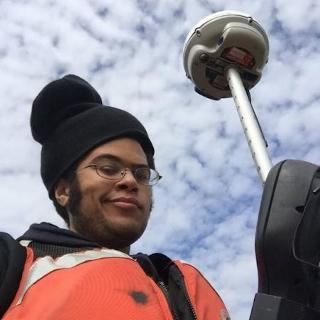JEDI Conversations

Bio
Jabari Jones, Ph.D. Candidate in the Department of Earth & Environmental Sciences and St. Anthony Falls Laboratory, studies how climate and land-use change affect river systems, critically evaluates the efficacy and value of field education in the geosciences, and links social and physical systems through research into environmental justice. A Minneapolis native, Jabari returned to his home city after completing his undergraduate studies in geology at Carleton College, research linking fluvial geomorphology and fish habitat with the US Geological Survey, and M.S. in watershed science from Utah State University. Jabari's vision for interdisciplinary geoscientific research with tangible impacts aligns strongly with his volunteerism and efforts towards community engagement, and these together orient both the broad topical span and focused ethos of his continuing Ph.D. work.
Introduction by Jabari Jones
After the murder of George Floyd on May 25, 2020, organizations across the US decided to address racism and bias more seriously than they ever had before. They published statements, developed programming around diversity, equity, and inclusion, and pledged resources to redress existing inequity. One of the most consistent calls was to elevate and center the voices of people of color, and this article is my attempt to add my voice to the conversation. Following May 25, I plunged into activism and volunteering even as I saw the city that I call home literally burning around me. And I learned a great deal living the duality of an academic life and a life fighting for justice in the streets. There’s much work to be done to generate a more equitable world, and it won’t be easy. But we have to stay committed to that hard work and hard conversations if we truly want to produce a science and a society that is more just and equitable.